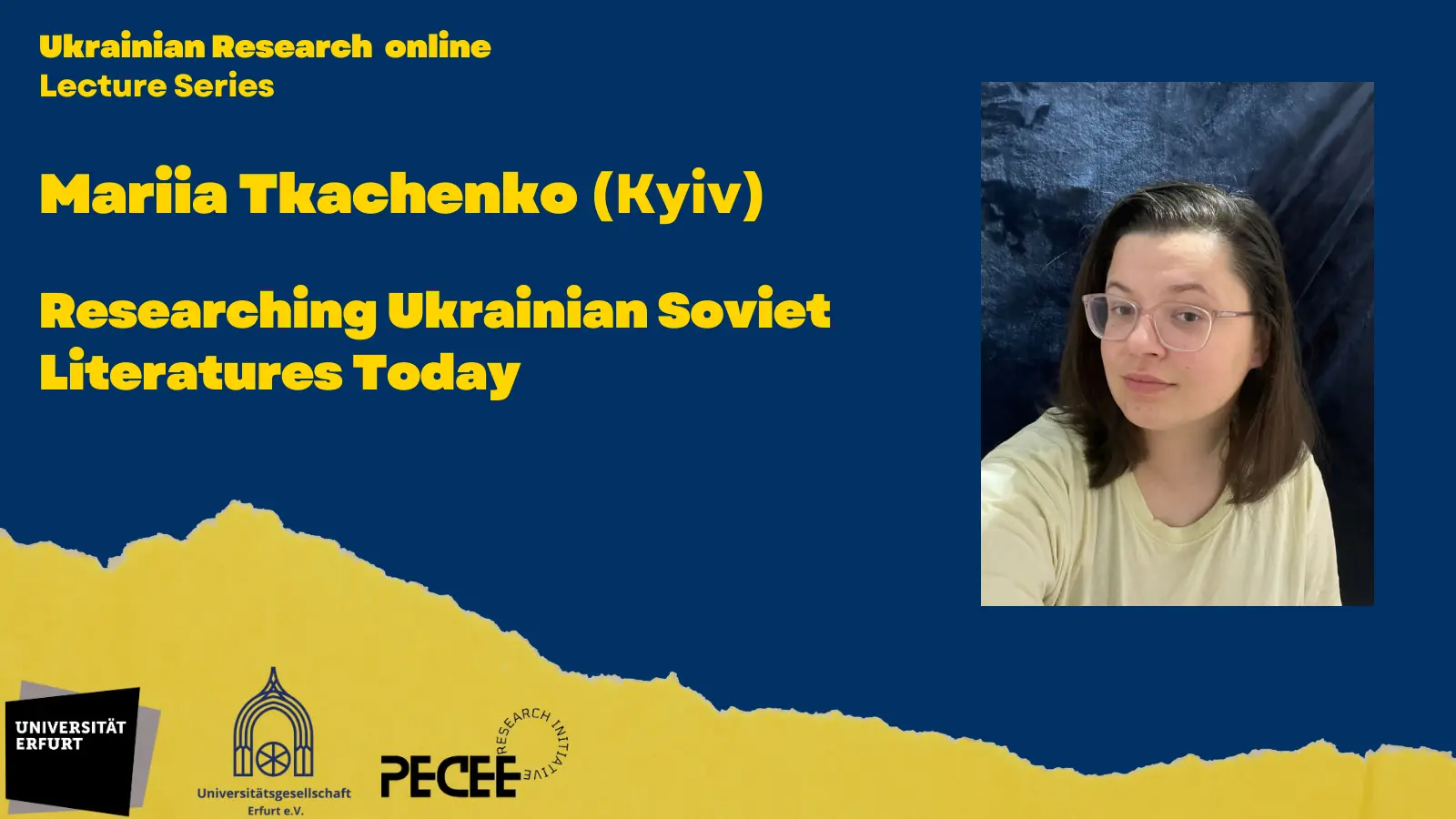Ukrainian Research Online is an initiative to provide visibility for our Ukrainian colleagues and their work. The lecturers receive an honorarium, financed by donations. To find out more about our initiative, and about ways to support it, please visit the Initiative's website The idea of the platform is to increase the visibility and outreach of the research of our Ukrainian collegues. All expressed opinions remain their own.
We are happy to present you a lecture by Mariia Tkachenko, PhD student at the Shevchenko Institute of Literature, National Academy of Sciences, "Researching Ukrainian Soviet Literature Today."
The starting point of this approach to Soviet literature is the premise that Soviet literature is not the same as Russian Soviet literature. This provides a methodological alternative to many current studies that continue the legacy of Sovietology by treating all Soviet heritage as "Russian" rather than differentiating between the literatures of the fifteen Soviet republics and the many more ethnicities that inhabited them. Soviet literature in each Soviet republic was deeply rooted in its cultural tradition and native language, which framed the discourse that could be used to describe the "new" reality of Soviet life. Thus, we must speak of two different influences on Soviet literature in each republic. First, Soviet literary landscape was highly centralized and censored by the power discourse based in Moscow, thus any Soviet literature had to reflect the general political discourse, issues, conflicts, and values. They were often sent "from above" in the form of official directives and laws, without paying any attention to the local context. Second, the Soviet Union, after the end of the policy of korenizatsiya, implied imperialist, colonial pressure on each Soviet republic. Russian literature had a first-class status and was expected to be treated as a supreme example to be imitated by everyone. In addition, literature in each republic was required to search for links to Russian culture. If they did not exist, they should invent them. With these influences in mind, the industrial novel in Ukrainian Soviet literature is a topic that provides an insight into the history of Ukrainian literature.


